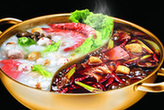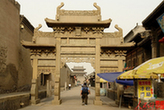Back to ancient roots
Kunqu is one of China's oldest surviving opera forms.
Characterized by musical performances combined with complex choreography, it dominated other kinds of Chinese theater between the 16th and 18th centuries. Its influence has earned Kunqu the distinction as the "mother" of other forms of Chinese opera, including Peking Opera.
After New China's 1949 founding, the government began efforts to bolster opera by training professionals for traditional theaters and establishing specialized arts research institutes.
Within two decades, the "cultural revolution" (1966-76) had ended these efforts. Then, in the early 1980s, the Ministry of Culture called on actors trained in Kunqu Opera to resume their work.
But reviving the venerable performance art has encountered challenges - a lack of playwrights with fresh ideas, the loss of documentation about Kunqu plays (only about 10 are regularly performed, compared with 800 during Kunqu's heyday), insufficient funding for Kunqu theaters and a sharply decreasing number of students who pursue the form as a career. By the early 20th century, Kunqu was on the verge of disappearing.
At the start of the 21st century, UNESCO designated Kunqu Opera as "a masterpiece of the oral and intangible heritage of humanity".
Tan says he hopes his devotion to The Peony Pavilion can help restore the form to prominence.
"Kunqu Opera is so much about talking and singing. It's beautiful and classical. It's even a few hundred years older than Peking Opera," Tan tells China Daily. "But this beautiful, traditional art form is gradually being forgotten."
Revival of classic
The Oscar-winning artist says his idea for reviving the most famous work of Kunqu came in 2008.
"I started to have a dream five years ago. Later, during the 2010 Shanghai Expo, I was having tea one day in garden surroundings. All of a sudden, I was inspired by the beauty of the singing birds, the flowers, the fish and the flowing water. Then, I asked myself: 'Why not stage a traditional opera that can blend the beauty of traditional Chinese gardens?'"
Tan would realize his dream when his updated The Peony Pavilion premiered in 2010 in Zhujiajiao, a canal-laced "water town" settled 1,700 years ago near Shanghai that is one of the composer's favorite places.
The Met's Hearn spoke to Tan immediately after seeing the production in Shanghai. The composer wanted to know about possibly bringing it to the New York museum.
"I asked Hearn if it would be possible to stage the show at the Met, and he really liked the idea," Tan recalls. "So, I immediately flew to New York. When I saw Astor Court, I said to myself: 'My god - that's the place!'"
Suggestions and help from different corners helped turn the idea into reality, spearheaded by Met administrators and the US-China Cultural Institute, particularly chairwoman Shirley Young.
Tan's latest iteration captivated New York audiences over a four-night run at the Met that ended in early December. Invited guests included Hans d'Orville, UNESCO's assistant director-general for strategic planning; Li Baodong, China's permanent representative to the United Nations; and Hearn.
"You can see that tangible culture and intangible culture come together beautifully, and you are not only coming for the beautiful Kunqu Opera but also the link to the music and the real environment," d'Orville says.
"It can also induce other nationalities and non-Chinese to appreciate Chinese culture and heritage much better, especially in this age of globalization, and induce young Chinese - and their parents - to pursue Kunqu training from early years on."
To Hearn, a mood is set by "the haunting sound of the Chinese guqin (zither), the bamboo flute. They were extremely evocative and brought a new kind of life to our garden. The opera has accomplished so many things - the way it's brought together with the works of art and the surrounding galleries."
After the New York museum run, Tan was invited to bring his production to other cities, including Los Angeles, London, Tokyo and Paris.
International acclaim has opened doors for the Oscar winner (he's also the first Chinese to win Russia's Shostakovich Award) to pursue various musical projects, but his love of Chinese culture keeps him grounded.
"It doesn't have to be an Eastern garden; it could be performed in a Western-style garden as well, even Versailles - then the message of appreciating China's garden culture and Chinese Kunqu Opera would spread to different places and be shared by many," Tan says.
And Tan hopes the fresh production can uplift Kunqu's popularity in the long run. "We need a lot of actors and actresses, which means we'll need more schools and institutions to train more young players," he says.
"I hope this performance concept in different gardens in different countries will keep the Kunqu tradition alive and more schools will be open for the younger generation."





Why not rent a boyfriend, or girlfriend to please parents during the Spring Festival?